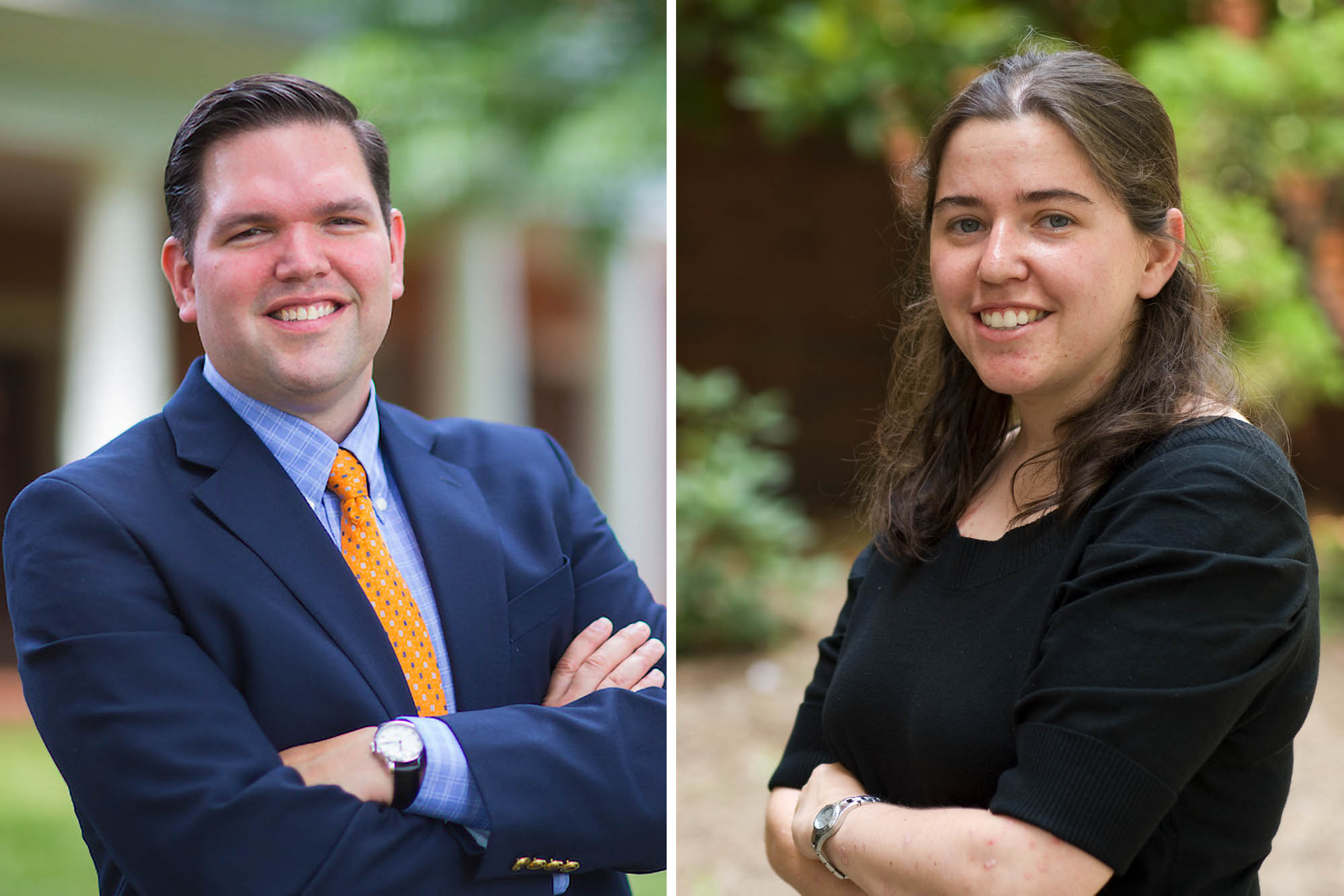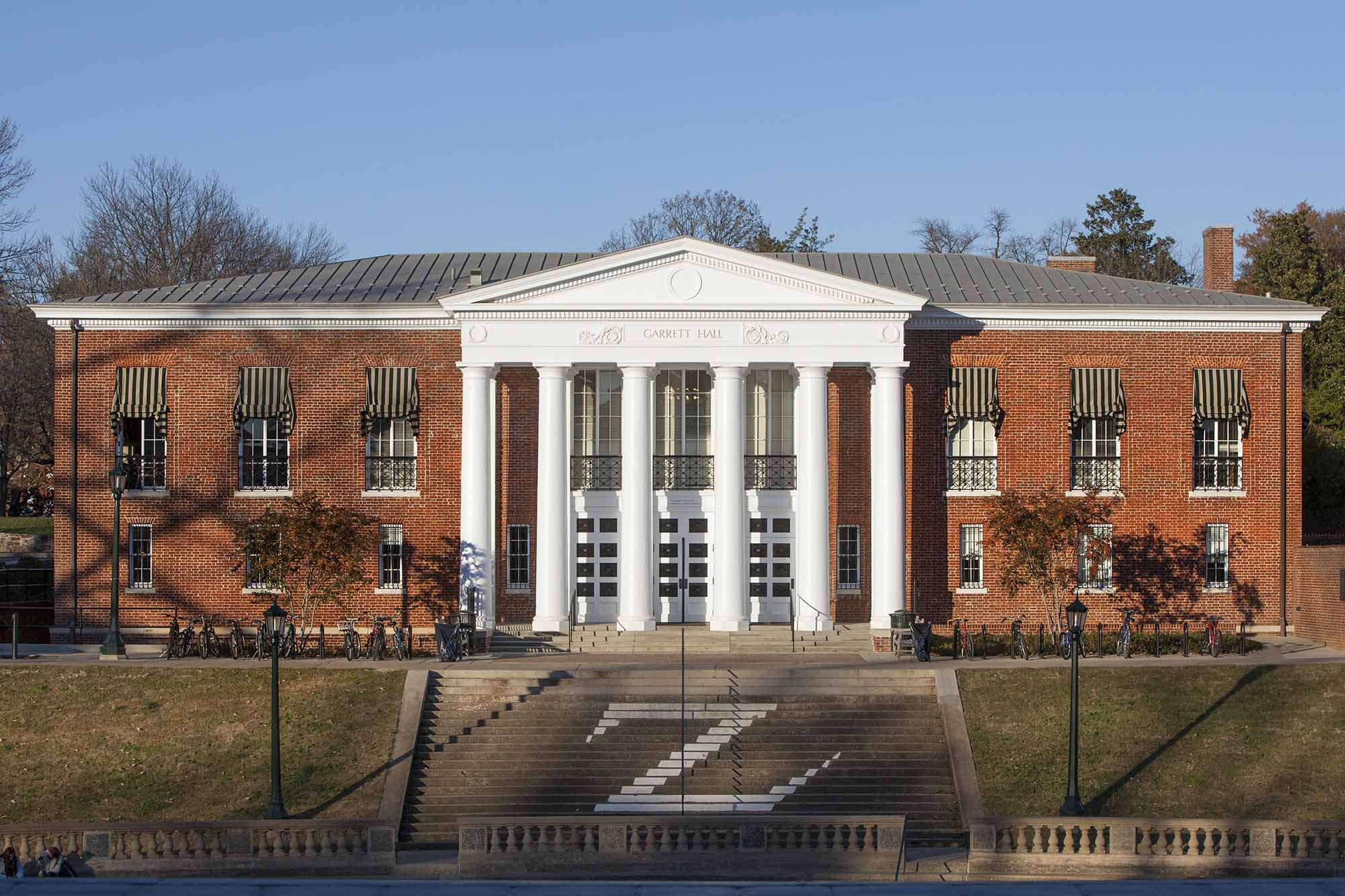Last year, Alex Pinckney found herself struggling to pick a graduate school. The pandemic wasn’t helping matters. “I felt very overwhelmed, trying to make this decision without the ability to visit the schools I was considering,” Pinckney said.
Then she got an email from Dan Player, a professor at the University of Virginia’s Frank Batten School of Leadership and Public Policy – one of the schools that had offered her admission. During a phone call soon after, he told her that at UVA, she could likely participate in a program that would allow her to perform vital education research, helping the Commonwealth of Virginia solve urgent policy problems.
Pinckney was sold. “I feel most excited when my work doesn’t exist just in a class and for a grade,” she said. “I wanted to do something with my time that felt useful. It meant a lot to know that I would have the opportunity to work with other students and professors on projects that really mattered.”
The program that Pinckney learned about that day is called Ed Policy Associates, a collaboration between the Batten School and UVA’s School of Education and Human Development that admitted its first cohort last year. Open to students at every level and from a broad range of backgrounds, the program is funded by a combination of faculty grants and a grant from the Strategic Investment Fund to the Virginia Policy Partnership Collaborative, an initiative that connects Virginia policymakers with UVA faculty who conduct innovative education policy-related research.

Player, one of the program’s faculty co-leaders, says that Pinckney was drawn to its central goal. “We want to be of service to the state,” he said. “We’re lending our expertise, and we want students to be involved in that.”
Members of the program’s inaugural class of 15 are helping Virginia’s early childhood programs and schools better respond to the COVID-19 crisis. Collaborating with Batten professors, graduate students, as well as each other, this year’s ed policy associates are doing things like evaluating school reopening plans and crafting recommendations to increase equity in the classroom.
May master’s degree candidate Meghan Clancy also belongs to this year’s cohort and is part of a small seminar where students work with state officials to help address the needs of Virginia’s youngest learners, who missed out on essential early learning experiences during the pandemic. She said she believes that ed policy associates like herself can offer Virginia policymakers a fresh perspective. While public sector employees can be busy and constrained by politics, “We’re more well-resourced in terms of time,” she said, “and while we still have people to answer to, we have a bit more freedom in how creative we can be with our approach to research.”
As she explores the measures that other states might take in the aftermath of the pandemic – such as adding an extra grade between second and third to help at-risk students catch up – Clancy said she’s experienced an exciting sense of possibility.

Professors Dan Player and Daphna Bassock co-lead an inaugural cohort of 15 students. (Photos by Jack Looney and Dan Addison, University Communications)
“It’s an opportunity to not just go back to where we were pre-COVID, but to rethink the options on the table,” she said.
Jenna Conway, Virginia’s chief school readiness officer has made it clear that the Department of Education values that approach.
“She told us, ‘I want to see all the options. If you look at the research and find something that could be effective, we might not be able to do it, but I want it to cross my desk,’” Clancy said.
In Pinckney’s view, this kind of collaboration with Virginia policymakers is not just beneficial to the commonwealth – it’s been enriching for her own academic experience, as well. Although she’s researched key education issues in the past, such as school desegregation, the fact that she just completed her undergraduate degree means that she especially appreciates the opportunity to gain policy experience in the world beyond the classroom. What she’s learning is deepening her understanding of what policy itself means.
“I never thought about stakeholders before, but now it’s always on my mind: Who do I have to convince that this is a good idea, and how am I going to do that?” she said. “You need to balance the desires of parents, teachers, students, the legislature. It’s about learning to package your suggestions so that everybody feels that they’ve gotten what they want. That’s what policy is.”
Similarly, another member of this year’s cohort, Logan Botts, says she appreciates the skills she’s acquiring through the program. She notes that they’ll empower her to influence the policy world far into the future.
“We’re doing research that will benefit citizens of the commonwealth,” she said, “but the program is also influencing ed policy associates like myself, who can take the skills that we’ve learned and apply them to work we do in Virginia or elsewhere.”
Player and his program co-leader, Batten professor Daphna Bassok, who also teaches at the School of Education and Human Development, believe that the influence of Ed Policy Associates can extend far beyond the field of education as well. They were impressed by the number of talented students who applied: more than 100.
“We keep thinking, if we found all these applicants who wanted to do this for education, surely there are students at UVA who can bring similar insights who want to do it for health policy or other policy areas. We’re asking ourselves, ‘How do we expand this? How do we make it sustainable?’” Bassok said. “This is just a first pass. We’re very excited about this program’s potential.”
Media Contact
Article Information
March 8, 2021
/content/new-program-enlists-students-help-virginia-schools-respond-pandemic

